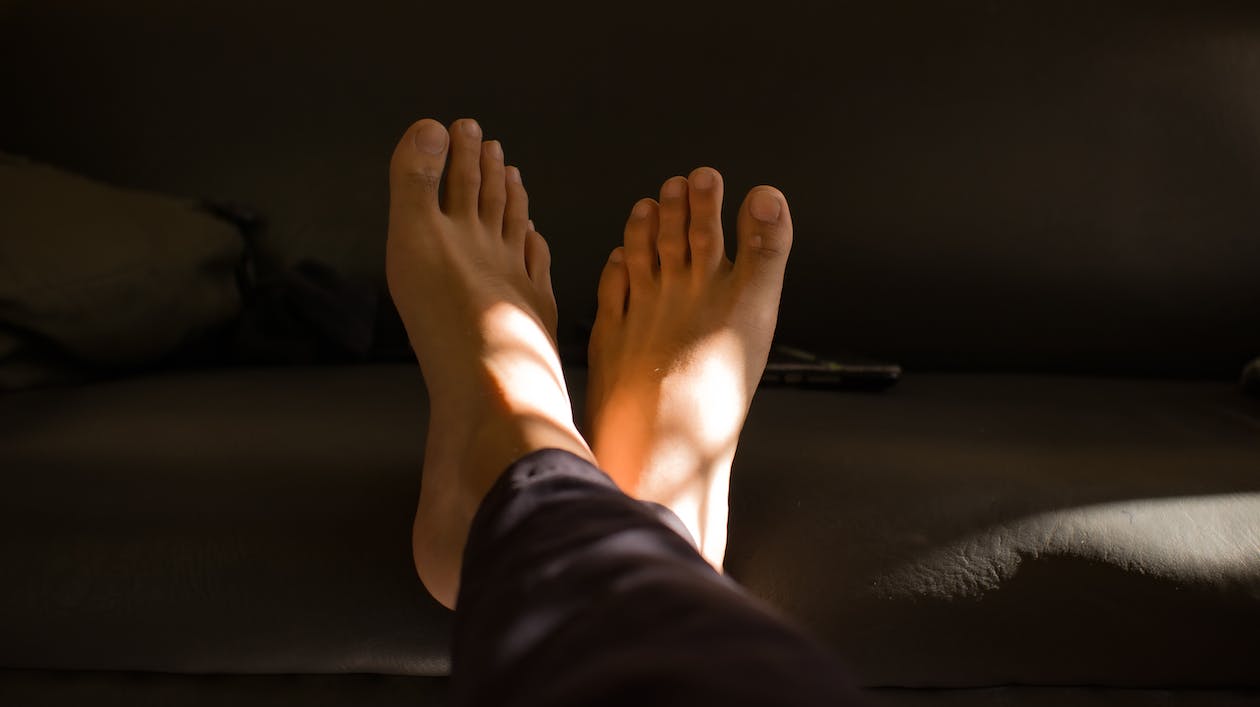How Do You Get Toenail Fungus?
Toenail fungus, medically known as onychomycosis, is a common condition that affects many people. It can be embarrassing, uncomfortable, and difficult to treat if left unchecked. Residents of Newbury Park may be more susceptible to fungal infections due to the area’s active lifestyle, access to public pools, gyms, and sports activities, which increase exposure to fungus-causing environments. Understanding the causes, symptoms, and treatment options is essential for maintaining healthy nails.
Fungus is present almost everywhere, but only a small percentage can infect your nails. The most common ways to contract toenail fungus include:
-
Public places: Swimming pools, locker rooms, gyms, communal showers, and nail salons are all hotbeds for fungal growth due to their warm, damp conditions.
-
Improper hygiene at salons: Unsanitized tools and equipment can spread fungus rapidly among clients.
-
Family history: Fungus can be hereditary; if someone in your household has toenail fungus or athlete’s foot, you may be at risk.
-
Medical conditions: Diabetes or weakened immune systems make it easier for fungal infections to take hold.
Even minor nail damage, like cracks or splits, can provide an entry point for fungal spores. Regular exposure to these environments or risk factors can allow the fungus to thrive under the nail.
Signs and Symptoms of Toenail Fungus
Toenail fungus often starts subtly, making early detection challenging. Key symptoms to watch for include:
-
Discoloration of the nail (yellow, white, or brown streaks)
-
Thickened or distorted nails
-
Crumbling or splitting along the edges
-
Foul odor resembling cheese
-
Pain or discomfort when walking or wearing shoes
-
Separation of the nail from the nail bed
The slower growth rate of toenails compared to fingernails allows the fungus more time to spread before visible symptoms appear, especially in the dark, moist environment inside shoes.

Why Professional Treatment is Important
Toenail fungus is highly contagious and can spread if untreated. Over-the-counter topical solutions are usually ineffective because they cannot penetrate the nail bed where the fungus thrives. Oral medications may have a higher cure rate but carry serious risks, including liver toxicity, and require regular blood monitoring.
Laser treatment has become the most effective solution for toenail fungus. The FDA-approved PinPointe Laser typically requires only one session to effectively treat the infection. Unlike other treatments, it has a high cure rate, is painless, and requires no recovery time. Patients can resume their daily activities immediately after treatment.
Our nail doctor in Dallas, TX, recommends the PinPointe Laser for treating toenail fungus, as it targets the infection directly while protecting the surrounding tissue.
Preventing Toenail Fungus
Prevention is always better than a cure. Tips for avoiding toenail fungus include:
-
Wear flip-flops or sandals in public showers, pools, and locker rooms
-
Avoid sharing shoes or nail care tools
-
Keep feet clean and dry, and change socks regularly
-
Disinfect personal grooming tools
-
Seek prompt treatment for athlete’s foot or minor nail injuries
Fun Things to Do in Newbury Park, CA
Nestled in Ventura County, Newbury Park, California, combines suburban comfort with access to some of Southern California’s most beautiful natural spaces. Surrounded by the Santa Monica Mountains and close to both Los Angeles and the Pacific Coast, Newbury Park is a hidden gem that offers outdoor adventures, family-friendly attractions, shopping, and cultural experiences. Whether you’re visiting for an appointment or spending the weekend, here are some fun things to do in Newbury Park.
Explore the Outdoors
Newbury Park is well-known for its hiking trails, open spaces, and scenic views.
-
Santa Monica Mountains National Recreation Area – One of the largest urban national parks in the world, this area offers miles of hiking, biking, and equestrian trails. Popular routes include the Satwiwa Native American Indian Natural Area, which also features cultural exhibits.
-
Rancho Sierra Vista/Satwiwa – This part of the national park includes trails with panoramic views of the Conejo Valley and opportunities to connect with local history and Chumash culture.
-
Sycamore Canyon Falls – Just a short drive away, this trail leads to a seasonal waterfall, making it a favorite for hikers and families.
-
Dos Vientos Community Park – A spacious park featuring playgrounds, sports fields, and walking trails—perfect for families and picnics.
For outdoor enthusiasts, Newbury Park offers countless ways to stay active while enjoying California’s natural beauty.
Discover Local History and Culture
In addition to its natural charm, Newbury Park has cultural and historic sites worth exploring.
-
Stagecoach Inn Museum – Located nearby in Thousand Oaks, this historic site dates back to the 1800s and offers a glimpse into early California life with exhibits, artifacts, and living history programs.
-
Satwiwa Culture Center – Highlighting the traditions of the Chumash and other Native American communities, this center is a great place to learn about the region’s cultural heritage.
-
Local Art and Performances – The Conejo Valley area is home to theaters, galleries, and performance spaces that host everything from local productions to touring shows.
These cultural spots provide a balance to Newbury Park’s outdoor recreation, giving visitors insight into the area’s history and creative community.
Shopping and Dining
When it comes to shopping and dining, Newbury Park and the surrounding Conejo Valley deliver a mix of convenience and variety.
-
The Oaks Mall – A large shopping center just minutes away, featuring major retailers, boutique shops, and plenty of dining options.
-
Local Restaurants – From casual cafés to fine dining, Newbury Park’s food scene has something for everyone. Popular choices include fresh California cuisine, international flavors, and cozy neighborhood spots.
-
Farmers’ Markets – Weekly markets in the area provide fresh produce, artisanal goods, and a chance to experience the community’s agricultural roots.
Whether you’re looking for a quick bite or a full day of shopping, the area offers plenty of options.
Family-Friendly Activities
Families will find Newbury Park especially welcoming, with plenty of activities for kids and adults alike.
-
Conejo Valley Botanic Garden – A beautiful, 33-acre garden featuring themed areas like a butterfly garden, children’s garden, and hiking trails.
-
Local Parks and Playgrounds – Beyond Dos Vientos, the community has several neighborhood parks where families can enjoy outdoor play.
-
Nearby Attractions – With its central location, Newbury Park provides easy access to family favorites in Ventura, Malibu, and the greater Los Angeles area.
A Perfect Blend of Nature and Community
Newbury Park is a city that blends outdoor adventure, cultural history, and community spirit. Whether you’re hiking through the Santa Monica Mountains, exploring local museums, shopping at The Oaks, or enjoying a family day at the botanical garden, there’s always something to do.
From breathtaking trails and cultural landmarks to shopping, dining, and family activities, Newbury Park offers a well-rounded experience for both locals and visitors.
Take Action Today
If you notice any signs of toenail fungus, don’t wait. The earlier you start treatment, the faster and more effective the results. Contact our licensed nail doctors at Laser Nail Therapy in Newbury Park, CA, at 1-(800) 672-0625 to schedule a consultation or learn more about our over 150 locations nationwide.





